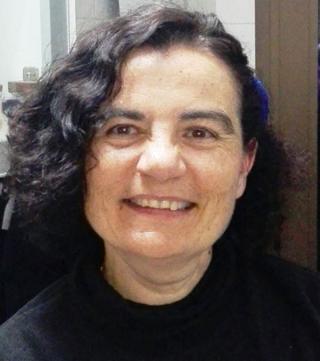1. A virus has changed our lives. Suddenly, no cars are circulating, schools and universities are closed, we cannot go out on the street whenever we want or even hug our loved ones. Could you explain how you are dealing with this situation?
As best I can: trying to set up work and leisure routines, working a fair bit and using new technologies to keep in contact with friends and family.
2. Do you think that this global shutdown will change you and your life? For years feminism has defended placing life at the forefront, not capital. Do you think that this crisis could be an opportunity to rethink our societal model?
This crisis has already radically questioned a certain societal model: it has highlighted that basic essential services for the community (such as healthcare or the elderly) are and should be public services instead of private businesses. It has also shown which people truly take charge of essential services for life (health professionals, as well as cleaning and care workers, shelf stackers and checkout operators, etc.).
Now, when all this is over, we need to make sure people don't quickly forget this and go back to making the same mistakes as in the past. And whilst we're at it, that those who do these jobs are recognised as they should be (with social esteem, higher wages, etc.).
3. From a gender perspective, how do you think the health crisis, economic shutdown and lockdown affect women?
It would take time to fully explain but, in short:
In the area of health, we do not yet have enough information to make firm statements. We will need to carefully analyse the data with a certain perspective in order to understand the infection, prevalence and mortality differences by gender that we are currently sensing. Some analyses have already begun that point to highly interesting results, but like I said, it's slightly early to draw any conclusions.
In terms of how the economic shutdown will affect society in general and women in particular will largely depend on how we restart the economy. It is essential that whatever measures are taken be formulated with a gender perspective so that, on the one hand, we continue to reduce inequality that women face in the job market and, on the other, that we attempt to mitigate the specific impact that the shutdown may have had on them. In other words, we must plan measures that do not represent a backwards step and enable us to move forward in achieving gender equality across society, including the job market.
With regard to the lockdown, I would highlight two major aspects. One is linked to the overload of work that being shut in at home can represent for many women, who generally do the most domestic and care work. Depending on their home situation, there may be an overload of tasks (caregiving, if there are sick or dependent family members; remote work for their professional career; dealing with school tasks for children, and taking care of them, etc.). Another particularly delicate aspect is the situation of women who suffer gender-based violence and have been confined with their aggressors. Different measures have been put in place to try to reach out to them and give them some type of escape, but given the completely new scenario we face, we cannot be certain that these measures really work or if we are reaching all those women who need them. This is frightening.
4. What role should the scientific community play at times like these? Do you think that a new era is beginning in research?
As with other topics and scenarios, it should be the experts and especially the scientific community who play the leading role.
I think that now there is a positive change and a large part of society has started to pay attention to the scientific community to find answers. We have the know-how to provide this information and this is where quality scientific outreach can plan an essential role which, in my opinion, it is doing well.
The important question is whether this impact and interest will continue after the crisis.
5. What should happen after the lockdown is over? What would you like to happen?
In summary, and so as not to repeat myself, I would like for this crisis to serve as a lesson so that we do not commit the same mistakes as in the past.
6. How do you combine teaching and research? Are you working on any project right now?
For me, with the content of the classes I teach and the point we are at in our research, adapting to working from home fully is not too hard.
I've been doing some of my work online for some time now. Moreover, I've also been participating in some fully online programmes and this prior experience has served me well.
In terms of research, right now we have an extension to finish a research project into attitudes towards violence against women. All the fieldwork is already done and the basic aim of this extension is to finish publishing our results, so we are fully focused on this. We are gradually getting there with the help of computing and the time made available to us.
Publication date: Tue Apr 07 09:56:00 CEST 2020
